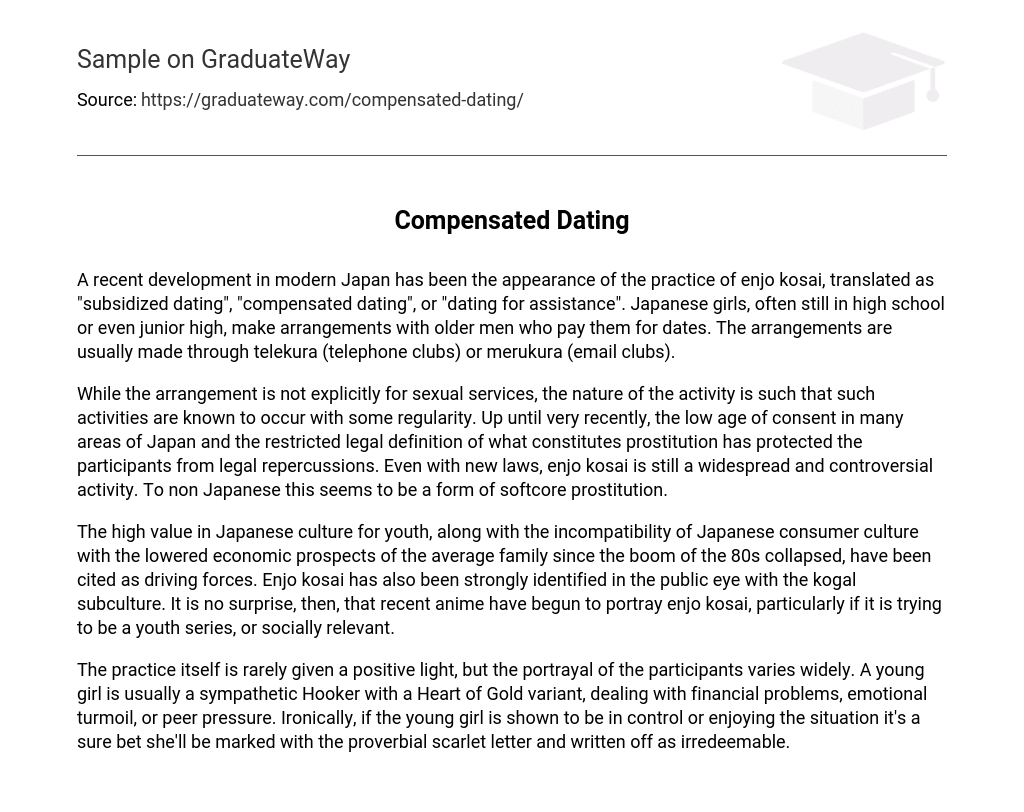Enjo kosai, also known as “subsidized dating”, “compensated dating”, or “dating for assistance”, is a new phenomenon in contemporary Japan. Young Japanese girls, some still in high school or even junior high, engage in arrangements with older men who provide financial compensation in exchange for dates. These arrangements typically take place through telekura (telephone clubs) or merukura (email clubs).
Although the specific purpose of this arrangement is not stated as sexual services, it is known that such activities do occur regularly. In the past, the participants were protected from legal consequences due to Japan’s low age of consent in certain areas and the limited legal definition of prostitution. Despite the introduction of new laws, enjo kosai remains a widely practiced and controversial activity. To those unfamiliar with Japanese culture, it may appear as a form of softcore prostitution.
Enjo kosai, which is strongly associated with the kogal subculture, has been linked to the high value placed on youth in Japanese culture and the incompatibility of Japanese consumer culture with the decreased economic opportunities for average families since the collapse of the 80s boom. As a result, recent anime series have started depicting enjo kosai, especially when targeting a young audience or aiming for social relevance.
The portrayal of participants in this practice varies widely, although it is rarely seen in a positive light. Typically, a young girl is depicted as a sympathetic Hooker with a Heart of Gold character, facing financial difficulties, emotional turmoil, or peer pressure. Ironically, if the young girl is shown as being in control or enjoying the situation, she is often stigmatized and considered irredeemable.





